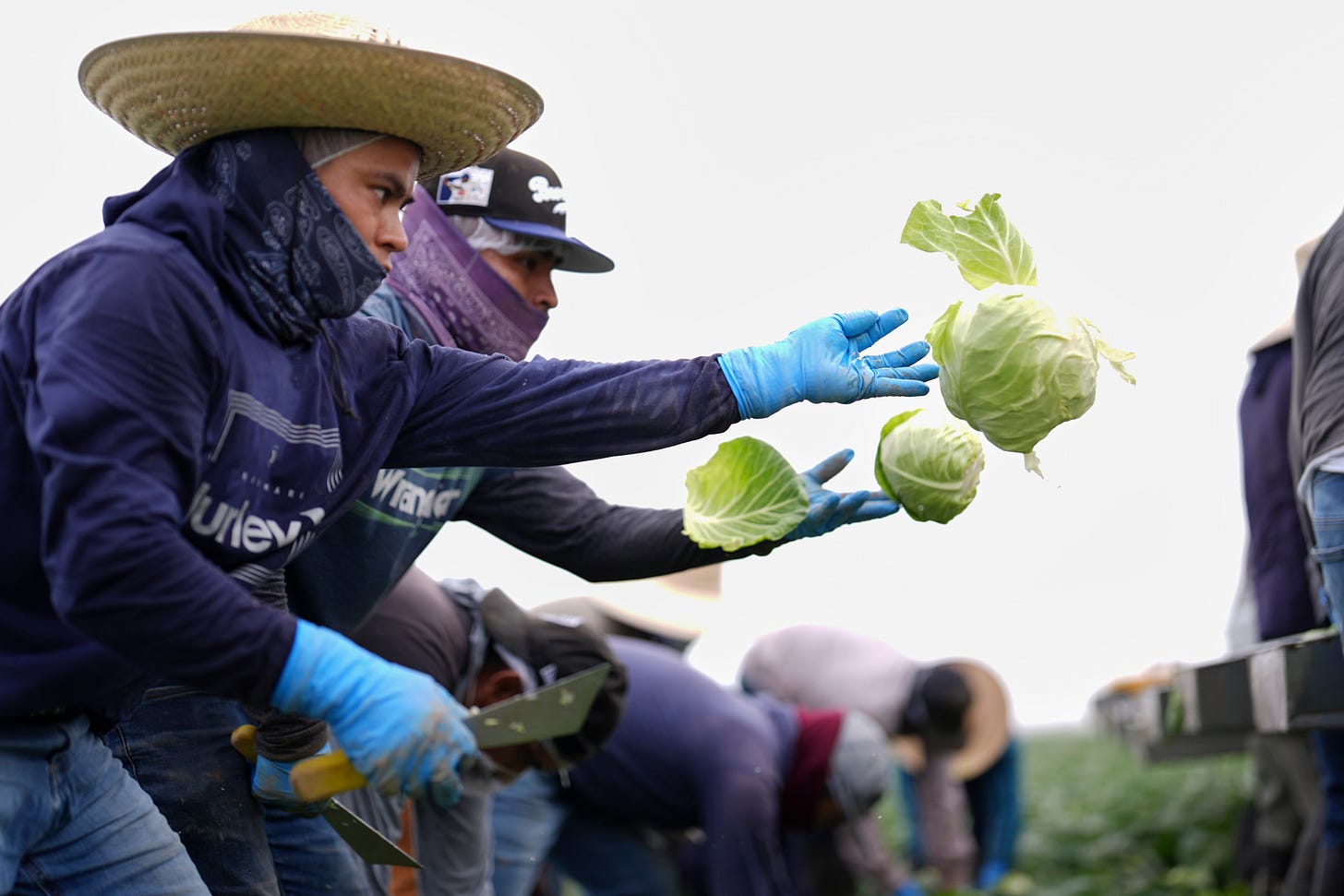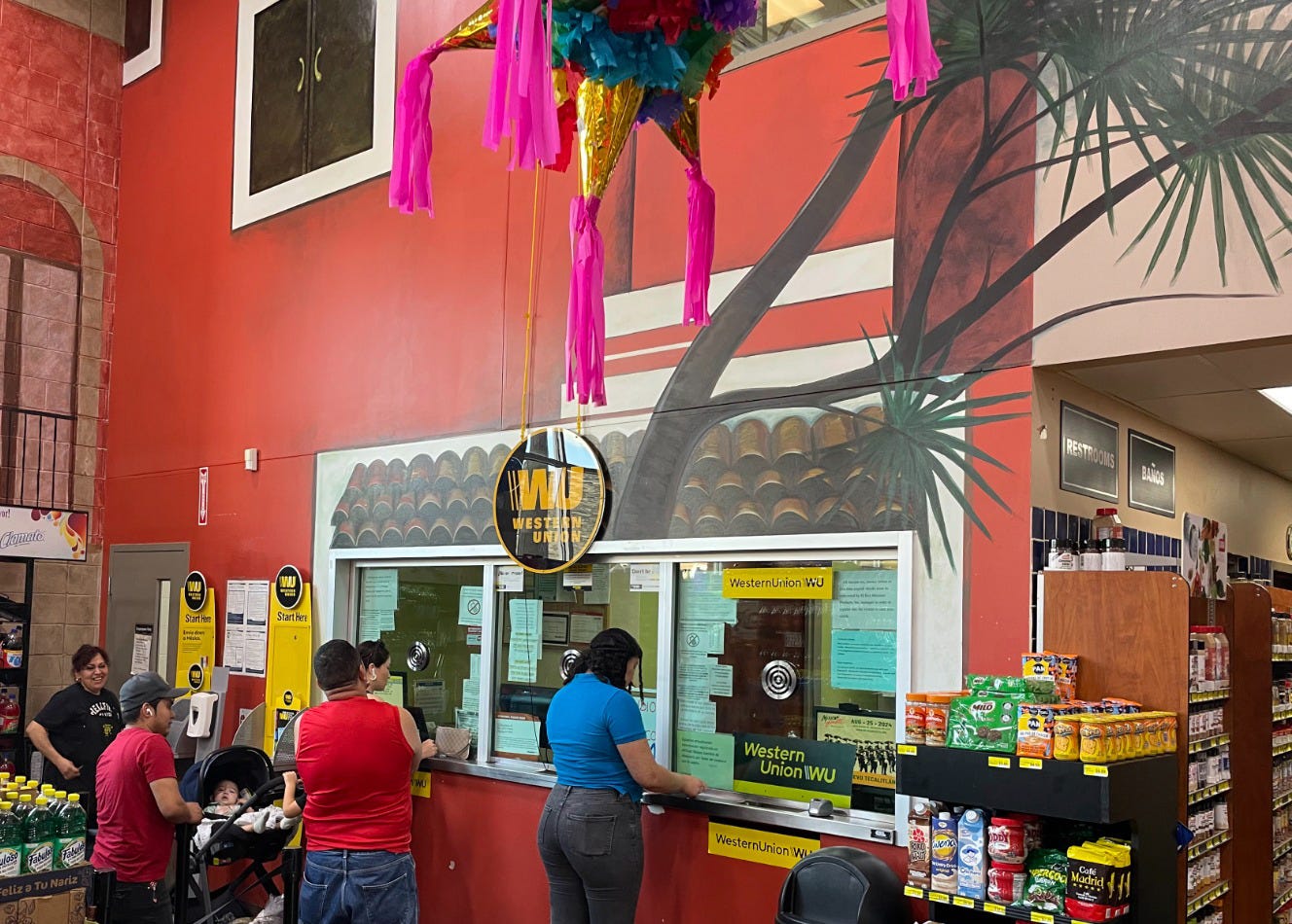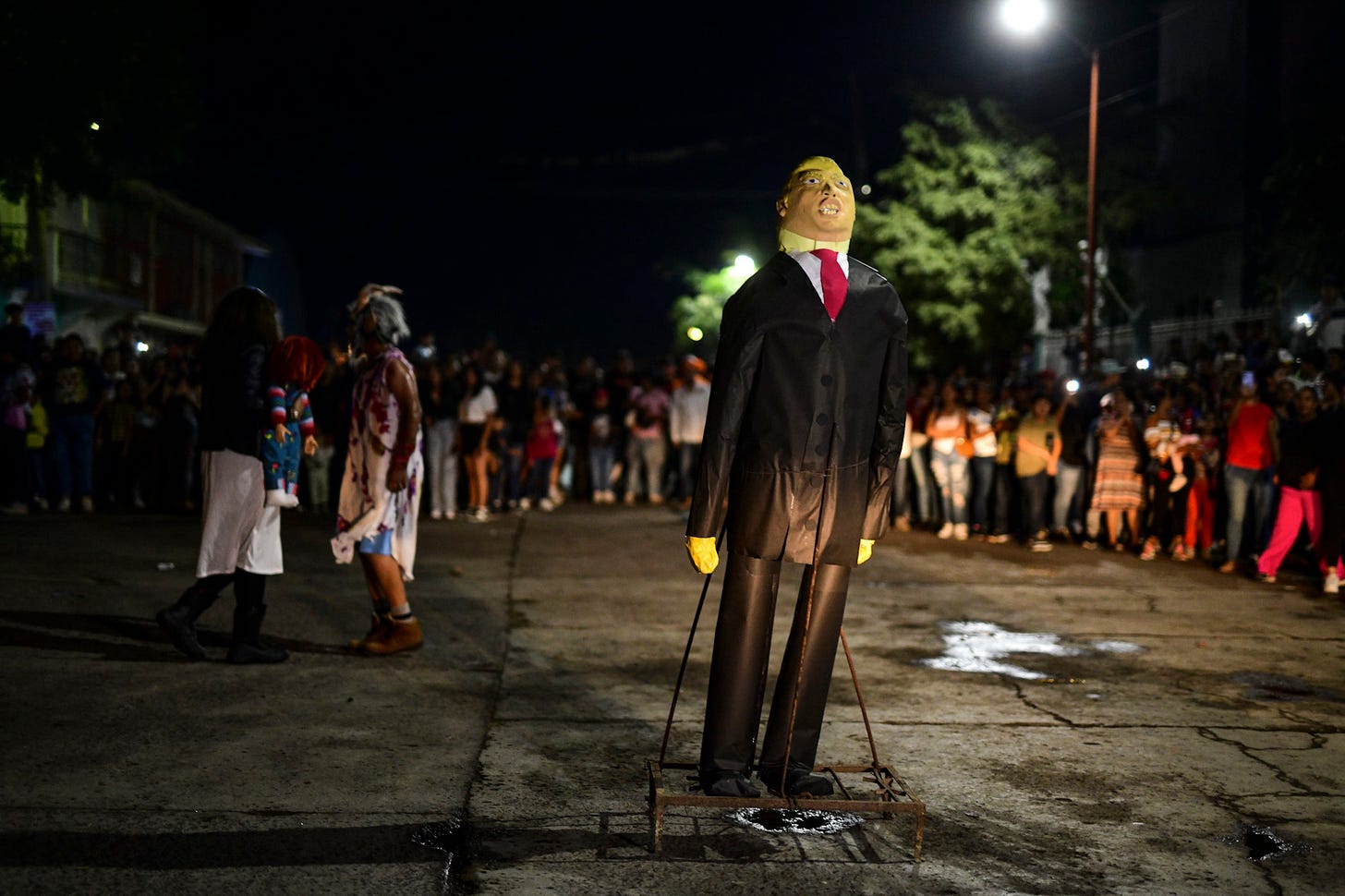09 May 25 | Mexico's Most Important Investors
Also in this edition: Donkey Festival. A children's orchestra in Iztapalapa. Joseph Stiglitz on Pope Francis. The Hunter of Stories, and Journalism: Eduardo Galeano. The Burning of Ill Humor.
Lea La Jornada Internacional en español aquí.
Remittances and Rescue
Mexicans living outside of the country are the largest source of money from overseas—far surpassing private sector foreign direct investment—and they support the country’s poorest regions. But, in an editorial, La Jornada warns the flow of funds will likely be reduced in the near future and the country needs a transition plan that reduces dependence on remittances.
Despite President Donald Trump’s anti-immigrant campaign of attacks, cruelty, and deportation, Mexican migrants continue to send record amounts of money to their families at home. In the first quarter of the year, remittances totaled $14.269 billion, setting a new all-time high.
The clearest indicator that this trend is continuing occurred in the third month of the year - the second month of Trump’s presidency - when money transfers totaled 5.15 billion dollars, an amount that represented a 2.7 percent annual increase, and followed February’s report of 4.494 billion dollars. Based on this data, BBVA Research concluded that Mexican workers in the United States have not yet faced major difficulties in continuing to support their families and communities back home, at least in the early months of Trump’s presidency.
However, Trump and his team are just getting started, and analysts at another economic forecasting firm, Valmex, warned that a slowdown in the U.S. economy—driven by greater protectionism and immigration policies—could have a negative impact on the volume of remittances.
An economic slowdown in the United States and a reduction in remittances would have an uneven impact across Mexico. Two out of every three dollars in remittances received in Mexico during the first quarter of 2025 were concentrated in 10 of the country’s 32 states, all with high levels of migration: Michoacán, Jalisco, Guanajuato, Chiapas, Mexico City, the State of Mexico, Oaxaca, Guerrero, Puebla, and Veracruz.
Chiapas is the most dependent on these transfers: according to estimates from the Center for Latin American Monetary Studies, the foreign currency sent by Mexicans abroad accounts for up to 15.9% of the state’s GDP—a sharp jump from the 2.3% of GDP a decade ago. In Chiapas, Guerrero, and Michoacán, the growing importance of remittances means that money sent home has increased at a much faster pace than the local economy.
Over the past three decades, migration—though still high and indicative of the deep social inequalities faced by millions of Mexicans—has declined in both absolute and relative terms. As a result, future generations will likely have fewer relatives abroad sending money back home. "This trend will only intensify if the aggressive deportation policies targeting undocumented migrants—initiated under former President Barack Obama and taken to a xenophobic extreme under Trumpism—continue,” writes La Jornada.
"Within this set of data lies a clear lesson for Mexican authorities at all levels of government, especially in the regions most dependent on remittances: it is urgent to implement public policies that foster economic development and provide communities with financial autonomy. In the medium term, a decrease in the flow of foreign currency is expected—funds that millions of families have depended on, both directly and indirectly, to make ends meet. Without a transition plan towards a reality where remittances no longer exist or are significantly reduced, vast areas of Mexico will see their local economies come to a standstill, leading to increased poverty and its associated hardships.”
The Quote
Your God is Jewish,
your music is Black,
your car is Japanese,
your pizza is Italian,
your gas is Algerian,
your coffee is Brazilian,
your democracy is Greek,
your numbers are Arabic, your letters are Latin.
I’m your neighbor—
and you still call me a foreigner?
-Eduardo Galeano
In case you missed it
◻️ Donkey Festival. Otumba celebrated and honored the donkey with its traditional carnival of costumed burros—a one-of-a-kind festival in the world featuring dozens of donkeys, showcasing the town’s identity as a sanctuary for these animals.
◻️ The fight for workers’ dignity, here and there. On this year’s May Day, Mexican labor unions scored a swift victory when President Claudia Sheinbaum agreed to their demand for a 40-hour workweek—though she stated it won’t take effect until 2030. During marches and protests across the country, workers revived one of the core ideas behind the original May 1, 1886 movement: demanding an 8-hour workday. They also voiced new demands for bigger bonuses and higher taxes on the wealthy. North of the border, the day was marked by protests and marches in over a thousand cities and towns across the United States, in defense of workers' rights—including those of immigrants—and in rejection of a government run by oligarchs.
◻️ Alternative and non-conformist cinema. “This is a festival of resistance, against algorithms and streaming, that showcases alternative and non-conformist cinema,” said Rosa Beltrán about the UNAM International Film Festival. The program includes two sections: the International Competition, featuring eight full-length films, and the Mexico Now Competition, with eight recent works that explore the diversity of contemporary Mexican filmmaking.
◻️ Press and Freedom. On World Press Freedom Day, UN Secretary-General António Guterres reminded the world that “free and independent journalism is a vital public good. It is the backbone of accountability, justice, equality, and human rights.” He expressed concern over ongoing attacks on journalists—especially in Gaza—and the growing impact of artificial intelligence. In Argentina, journalist Stella Calloni reported on the relentless attacks by President Milei’s government against the press, including efforts to fuel hatred toward reporters, a trend highlighted in the annual Reporters Without Borders report evaluating global press conditions.
◻️ Taibo II is targeting teen and young adult readers. Instead of simply lamenting the “incalculable” loss of young readers, “we need to take over the media with rich and imaginative content,” said Paco Ignacio Taibo II. To win back teenage readers, we have to go where they are in this digital age: take over TikTok, not compete with it. “I use TikTok and read manga, and that hasn’t stopped me from being able to spend an hour telling people who Leonardo da Vinci was.” The director of the Fondo de Cultura Económica announced a project to give away 2.5 million books to teenagers and young adults in Latin American and Caribbean countries to help them discover the joy of reading.
◻️ The Eastern Youth Orchestra was born in 2011 in one of the most troubled and dangerous neighborhoods of Iztapalapa. It has found a home in a Mexico City government-run community center, and the sounds of violins, guitars, and percussion now fill the air in the town of San Sebastián Tecoloxtitlán.
◻️ Pope Francis and the path to a fair economy. Nobel Prize-winning economist Joseph E. Stiglitz, and Martín Guzmán assess the Pope’s role in advancing the global debate on creating an economy that works for the majority.
◻️ The Hunter of Stories, and journalism. Eduardo Galeano, writes Luis Hernández Navarro, “identified with those who fight and never hesitated to align himself with emerging political and social movements…. He offered both his pen and his body in service of their causes. He brought them to life in small, powerful vignettes. He dove beneath the surface to tell us about the underground rivers that sustained them. In 2012… he summed it all up in just a few words: ‘The world is divided between the undignified and the indignant—neutrality is impossible.’” The piece concludes: “Today, more than ever, that tireless hunter of stories is a model for all of us who have taken up the best profession in the world.”











